In the marquee Texas Senate race, Cruz and O'Rourke take to the debate stage
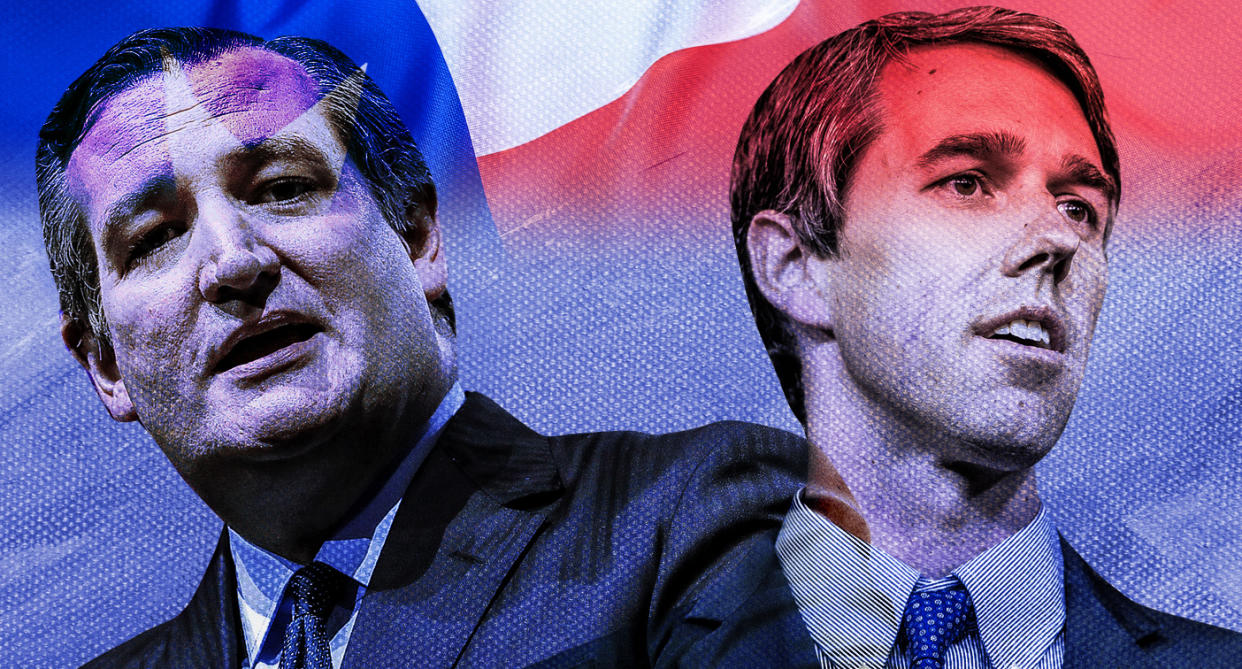
After months of back and forth, including nitpicking over the timing, location and even the type of furniture, Republican Ted Cruz will finally meet his Democratic challenger, Beto O’Rourke, on the debate stage Friday in Texas’s surprisingly close Senate race.
The one-hour debate, set to begin at 7 p.m. ET at Southern Methodist University in Dallas, is the first of three scheduled forums over the next two weeks between Cruz and O’Rourke, a matchup that has garnered national attention pitting one of the country’s best known tea party conservatives against a fiercely liberal three-term congressman who has charisma, celebrity supporters and ample funding — but whose fate will probably be decided largely by how unhappy Texas voters are with President Trump.
Friday’s debate, which is focused on domestic issues, is likely to highlight the stark policy differences between the first-term senator and O’Rourke, who was a little-known House member representing a strongly Latino district in El Paso before he announced his long-shot bid to unseat Cruz last year.
Among other things, O’Rourke has campaigned for stronger gun laws, including restrictions on the sale of military-style assault weapons like AR-15s that were used in recent mass shootings, including in Las Vegas and Parkland, Fla. Cruz, who has opposed new gun laws, has accused O’Rourke of wanting to “take our guns.” O’Rourke has responded that he respects the Second Amendment and does not want to take away weapons from “responsible” gun owners.
Meanwhile, Cruz, whose campaign in 2012 was based largely on his pledge to work to end Obamacare — a bill that eventually failed by one vote in the Senate — is still promising to overturn the program, blaming it for a rise in the cost of health care premiums in Texas. O’Rourke, who calls health care “a basic human right,” has vowed to protect the Affordable Care Act from repeal and has argued the nation should go further by establishing a single-payer health care system. He has also called for Texas to expand access to Medicaid. Cruz opposes the expansion.
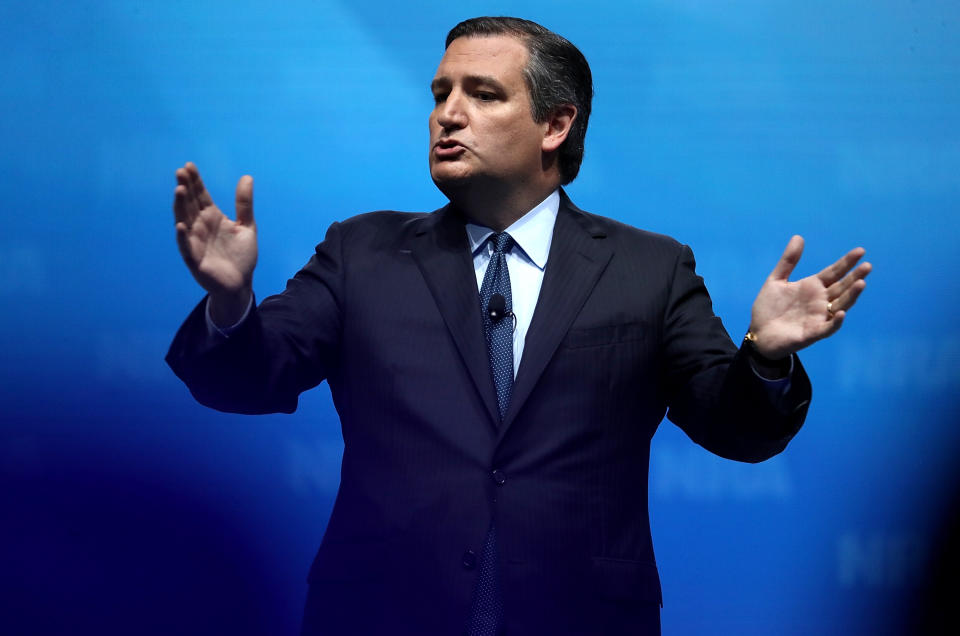
Yet the most divisive issue in the race — and one that polls suggest is the most important issue to Texas voters heading into the final weeks before Election Day — has been immigration.
While Cruz has been a strong supporter of Trump’s call for a new wall along the U.S. border with Mexico — of which roughly 1,200 of the 1,950 miles would be built in Texas — O’Rourke strongly opposes it, saying the border with Mexico has never been safer. The congressman has called for an end to the “militarization” of immigration enforcement, prompting Cruz to attack him as “soft” on the issue.
In an ad released earlier this week, Cruz accused O’Rourke of wanting to “decriminalize unauthorized border crossings.” O’Rourke’s campaign says that misrepresents his actual position, which is to not press criminal charges against asylum-seekers, a relatively small subset of border-crossers. Cruz also accused O’Rourke of wanting to get rid of the Immigration and Customs Enforcement (ICE) agency — an issue on which the Democrat has waffled amid pressure from his supporters. In June, O’Rourke said he was open to the idea of getting rid of the agency but later clarified he wanted to “abolish the practices” of ICE.
But while immigration is surely an issue that will help Cruz turn out supporters in a strongly conservative state, it is a topic could also prove tricky, especially with independents and even moderate Republicans who are more aligned with the “compassionate conservatism” championed by another famous Texan, former President George W. Bush. In an increasingly diverse state with a long history of welcoming immigrants, Cruz has alienated some voters with his opposition to allowing a path to citizenship for so-called Dreamers — immigrants brought over the border illegally as children — something O’Rourke strongly supports. And over the summer, Cruz saw his poll numbers plummet amid bad headlines over the Trump administration’s forced separation of migrant kids and their parents, a policy that Cruz at first defended before switching positions. O’Rourke has called the policy “un-American.”
But the debates are also likely to call attention to the stylistic and personal differences between Cruz and O’Rourke. Though far apart politically, they both arrived in Washington in 2013 as insurgent candidates who had won their campaigns in upset victories, unseating long-entrenched members of the political establishment. (Cruz defeated then-Lt. Gov. David Dewhurst, a millionaire who was backed by leading Republicans in the state, while O’Rourke, a former El Paso City Council member, unseated Democratic Rep. Silvestre Reyes in a primary, in which the longtime congressman had the endorsement of then-President Barack Obama and former President Bill Clinton.
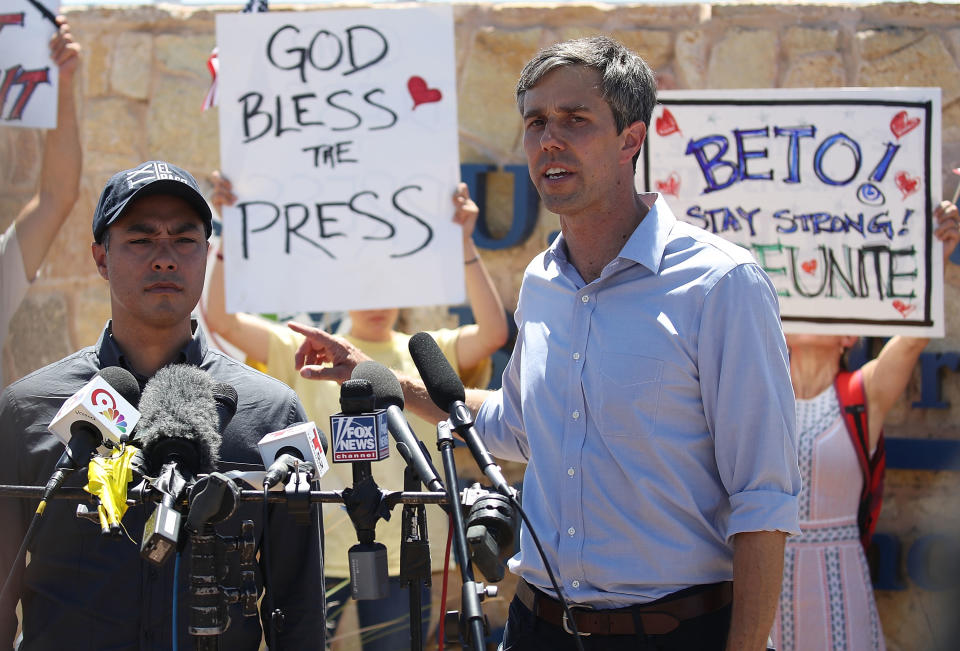
But although they were elected the same year and have served six years together in the same delegation (O’Rourke is one of 36 House members from Texas), it’s unclear how often the two men interacted. In fact, in interviews, Cruz and O’Rourke couldn’t agree on whether they had even met each other before this campaign.
“In Congress, I know most of the members of the Texas delegation. I’ve worked with many members of the Texas delegation the last six years,” Cruz told Yahoo News in an interview in July. “Until he announced for Senate, I had never met him once, to the best of my knowledge. … In terms of legislative battles in Congress, Congressman O’Rourke has not been a visible part of any of them.”
Since O’Rourke had announced, Cruz added, he had met the congressman “a couple of times,” adding, “I don’t know him well.”
Told of Cruz’s statement, O’Rourke was flabbergasted, calling it “bizarre.” In a separate interview, he recalled that he had met Cruz “many, many times” — including at airports when flying between Washington and Texas, and right after they arrived in the capital as newly elected lawmakers. He said he had gone up to Cruz and introduced himself “to share with him El Paso’s priorities and make sure they were on his radar.” “(It was a) nice conversation,” O’Rourke recalled.
In the fall of that year, O’Rourke said he had met with Cruz again in the midst of a 16-day federal government shutdown over funding for Obamacare in which the junior senator from Texas had played a leading role. O’Rourke said he had gone to visit Cruz to remind him that El Paso has the “fifth-highest concentration of federal employees” in the country, including border patrol agents and workers at other federal facilities like the William Beaumont Army Medical Center near Fort Bliss, one of the largest Army installations in the country.
“I said, ‘These are your constituents. They’re my constituents. You’re really hurting them in what you’re doing,’” O’Rourke recalled. But Cruz, he said, seemed “unmoved.”
O’Rourke said he had “many” other meetings with Cruz and with Texas senior Sen. John Cornyn, also a Republican, with whom he sponsored a bill to improve infrastructure and add personnel at entry points along the Texas border to help with security and trade.
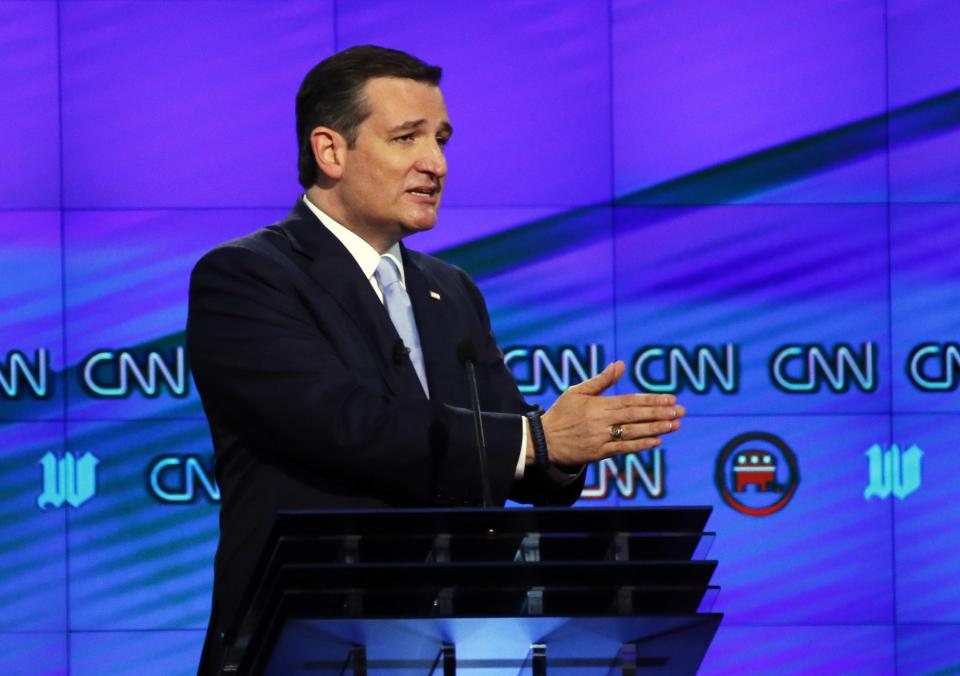
Both men arrive to the debate with distinct skills. Cruz, a college debate-team champion at Princeton, is considered one of the most skilled debaters in the political arena. And as a politician, he has gotten more practice — including nearly two dozen debates and forums he participated in when he was running for the 2016 Republican presidential nomination. In the last year, he participated in two televised debates on health care and taxes with Sen. Bernie Sanders of Vermont, the former Democratic presidential candidate who, like O’Rourke, backs single-payer health care.
While O’Rourke has considerably less debate experience, the handful of debates he participated in back in El Paso, including in his first race for city council, were heated and marred by ugly personal attacks. In one, an opponent accused O’Rourke, who was arrested for driving while intoxicated in 1998, of being an alcoholic. O’Rourke, a friend recalled to Texas Monthly, remained “completely cool.”
So far, O’Rourke has refused to go negative, even as Cruz and his allies have ratcheted up attacks in recent weeks. One ad used heavily edited video to suggest O’Rourke, who has defended the right of NFL players to kneel in protest during the national anthem, supports burning the American flag. In an interview last weekend, O’Rourke again insisted he would not go negative no matter how ugly the race gets. “There is the temptation,” he admitted. “[But] the people of this state have asked me to resist that temptation and instead focus on what’s important … So that’s what we’re going to continue to do.”
But the debate is likely to test whether O’Rourke can stick to that promise. And it’s likely also to be a test of whether the charisma he has exhibited as a campaigner, attracting rock star crowds of thousands of people by embracing Obama-esque messages of hope and inspiration about the future, can translate to the smaller stage against an opponent who is likely to come at him aggressively.
It remains to be seen how aggressive Cruz will be. In recent months, Cruz has worked hard to be a more congenial colleague in the Senate and more likable on the trail, cracking jokes and playing basketball with late night host Jimmy Kimmel to show a different side of his personality. What is unknown is whether he will put that on hold to go after O’Rourke in a race where he desperately needs Republicans to turn out.
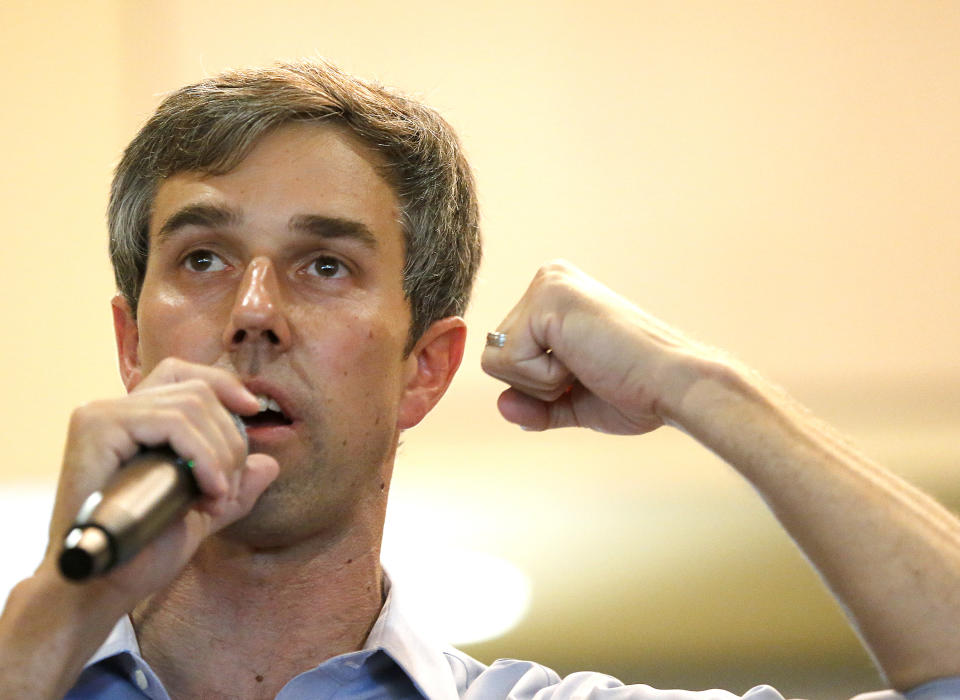
Cruz remains the favorite in the race. While he has been outraised by O’Rourke, allies who helped fund his 2012 campaign and his 2016 bid for the White House are preparing to spend big money to come to his defense. A Quinnipiac poll of likely Texas voters released earlier this week found the incumbent senator leading O’Rourke by 9 points — a notable, if not quite comfortable margin, but that was followed by a Reuters-Ipsos poll that found the two statistically tied. On Friday, the Cook Political Report changed its ranking for the race from “lean Republican” to “toss up.” Privately, Texas Republicans continue to express concerns about so-called “nonvoters,” people who don’t normally vote that O’Rourke is hoping to turn out this November, and about Republican complacency.
As Cruz and O’Rourke take the stage Friday night, they’ll go up against another formidable opponent: the glow of Friday night lights over high school football games. So for some voters, the debate could show up merely as one-liners or quick moments at the top of the 10 o’clock news or in ads, which is perhaps how the candidates would like it.
_____
Read more from Yahoo News:


